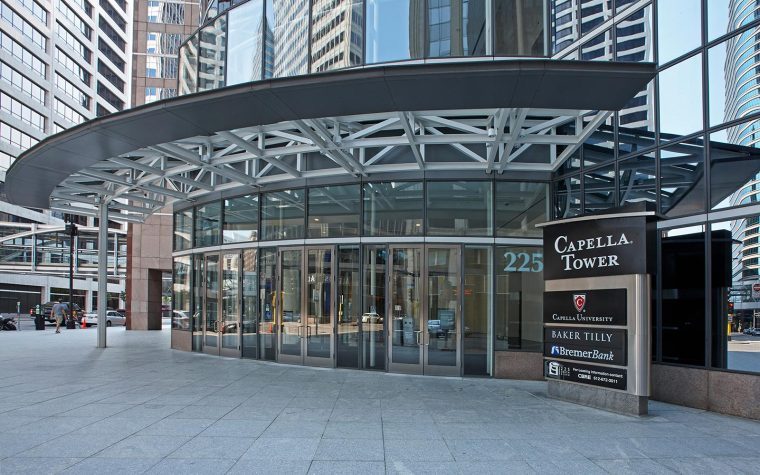Successful Student has distilled the relevant information and focused on the salient points about Capella University. This is an overview of Capella University, designed for students. Capella University offers online flexibility for studying and completing coursework. This means that students are allowed to complete coursework at their leisure and wherever they so choose.
Capella also offers a visual map of student progress as students advance towards the degree. This function also shows a competency assessment as students take classes, which helps students realize where their strengths are and the opportunity to get help for weaknesses. This is a pretty unique feature for college students, whether taking classes online or on campus.
FlexPath and GuidePath Options:
FlexPath allows for the flexibility of students to complete the coursework at their own speed.
GuidePath follows a weekly structured learning schedule. Students on this path are following the schedule of coursework as established by Capella.
Students may choose whichever path is more suited to their needs. Both have pros and cons relative to the learning style of the online student. Some students who need an open environment for study, and have limited time may prefer the FlexPath. Students who need deadlines set out before them, and weekly accountability, will likely prefer the GuidePath solution.
Capella offers grants, allows for incoming transfer credits, and tuition reductions.
Capella University | Frequently Asked Questions
1. Is Capella University nationally accredited?
Capella is regionally accredited by the Higher Learning Commission. The Higher Learning Commission is recognized by the U.S. Department of Education. Regional accreditation is the more respected and prestigious accreditation than national accreditation.
2. What is better nationally accredited or regionally?
Regional accreditation is considered more prestigious. Transferring from a regionally accredited school is easier. Harvard is regionally accredited. National Accreditation is more vocational-oriented and profit motivated. Most all institutions of higher learning, over 85%, are regionally accredited.
3. Is Capella University legit?
Capella University is regionally accredited by the Higher Learning Commission. Regional accreditation is a higher level of accreditation than national accreditation.
In this regard Capella University is legit. Students can be assured that any degree attained at Capella, including online degrees from Associate's to Doctorates, are from a regionally accredited university. Regional accreditation is the metric for legitimacy, and Capella has it. Harvard University is regionally accredited.
4. How much does it cost to attend Capella University?
In-state stated tuition and fees is $14,148 + $431 per year.
5. What GPA do you need to get into Capella University?
It depends on the program. Each different program has its own minimum GPA requirement. The minimum GPA requirement is 2.8 in the bachelor's and master's Flexpath programs. Check the individual program and degree level (undergraduate, graduate) to see the specific minimum GPA required.
6. Is a degree from Capella worth it?
Average earnings for graduates of Capella University 10 years after enrolling is $72,600.00. The employment rate 10 years after enrolling is 83%. Given these numbers, and considering an adult's lifetime earnings as a return on investment from the expense of tuition, yes, a degree from Capella is worth it.
The return on investment is approximately 38 times the cost of a bachelor's degree. This is working from around 34 years old until retirement at 64 years old, making $72,000 per year (without factoring in inflation). These numbers are estimates and tuition and average earnings can fluctuate, but these have remained stable over the past few years.
Capella's tuition, historically, even when it does rise, doesn't rise much by comparison to other universities. This depends largely on the degree itself and the determination of the graduate to seek employment.
